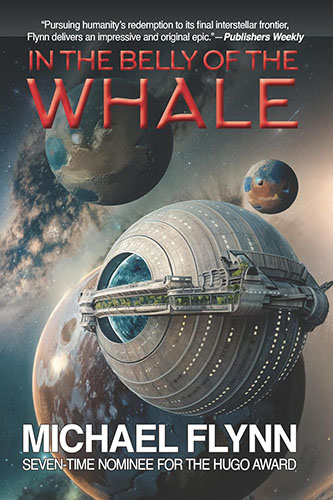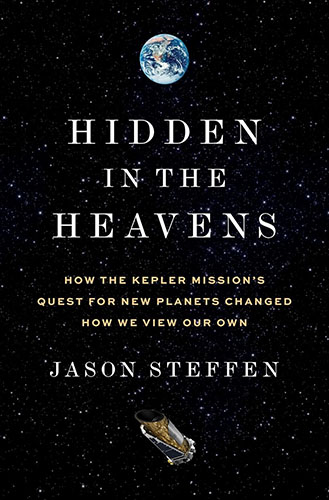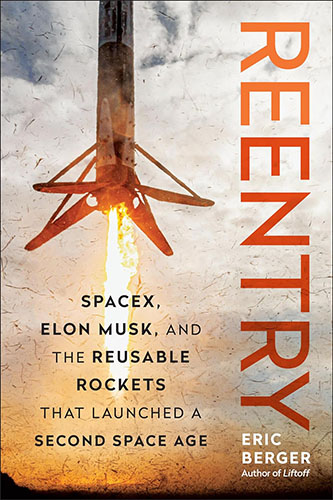Category: Fiction
Reviewed by: Clifford R. McMurray
Title: In the Belly of the Whale
Author: Michael Flynn
Format: Paperback/Kindle
Pages: 400
Publisher: Caezik SF & Fantasy
Date: July 2024
Retail Price: $19.99/$9.99
ISBN: 978-1647101015
Find this book
If you haven’t read any of Michael Flynn’s novels, you’ve been missing some of the best science fiction of the past 30 years. He is the natural successor to Robert Heinlein so it’s fitting that he was the first winner of the Robert A. Heinlein Medal for outstanding science fiction or technical writing promoting space exploration. Flynn’s novels are filled with Heinlein’s cynical optimism, looking forward to an inspiring future history for the human race among the stars in spite of the failings within individuals that have always made history tragic as well as glorious. Sadly, this is his last novel, published posthumously.
The opening sentences of the prologue capture perfectly the adventure that awaits the reader: “All this happened a great long time ago, by which we mean not merely that it was long ago but also that it was great…. People dared greatly, and so, failed greatly. At times, they even achieved greatly. This is the story of one of their achievements.” If that doesn’t hook you, nothing will.
The Whale is a generation ship, 200 years out on a thousand-year colonization voyage to Tau Ceti. The crew of 40,000 on this hollowed-out asteroid haven’t forgotten Earth, but it seems Earth has forgotten them; they haven’t received any radio messages from home in many years. The original social arrangement was an aristocracy headed by two captains. The go-captain supervises astrogation and propulsion with a relatively small portion of the crew, relatively detached from their human “cargo.” The in-captain supervises everything else and the majority of the crew. But time has degenerated the aristocracy into an arrogant oligarchy, with department heads named Lord Air, Lord Power, Lord Agro, etc. The crew is chafing under their arbitrary, self-serving rule, and a mutiny is brewing.
The other major story element is the Burnout, a wreck-within-the-ship that happened about two generations earlier. The Burnout killed hundreds and turned a sizeable portion of the ship into a twisted mess due to an unexplained failure of the gravity plates – Flynn’s one concession to “fantasy” physics. Up to this point, the rest of the crew thought the Burnout was uninhabited….
Events unfolding within the context of these two story elements are told from the point of view of a cast of characters too large to list. Among others, there’s an astrogator and his personal nemesis the Prince of Whale (Flynn has always been an incorrigible punster), the Princess of the Air and her tutor, a goof-off noncom of the Marines who discovers her personal call to greatness in the midst of bloody disaster, a eugenicist and her sociopathic boss, a couple of scavengers in the burnout, an Enforcer of Filial Devotion (nobody said the culture that heads out to the stars will necessarily be western), and a chief of detectives. And those are just the major characters; I’ve left a few out who have more than walk-on parts.
As always, Flynn populates his story with memorable characters drawn with uncommon insight, and delivers a story both wonderful and marvelous, in the literal sense of those words. Filled with interesting speculations and observations on culture, politics, and language, it’s also a meditation on the nature of society, and what can and cannot be expected of revolutions. Some events have very clear callbacks to the Easter Rising of 1916 in Dublin, and the French Revolution. Some people who “need killin’” get sent to Recycling, along with some innocents. In the end, some things change for the better, while some parts of the old order remain, and the new order bears the seeds of new problems. No sequel is really needed, but it’s a pity we won’t get to see one.
In the Belly of the Whale is, if you’ll pardon a Flynn-like pun, a whale of a tale, a grand reading adventure from first page to last. If there has to be such a sad thing as the last novel of a great storyteller, this book is a fine note on which to depart.
© 2024 Clifford R. McMurray



















